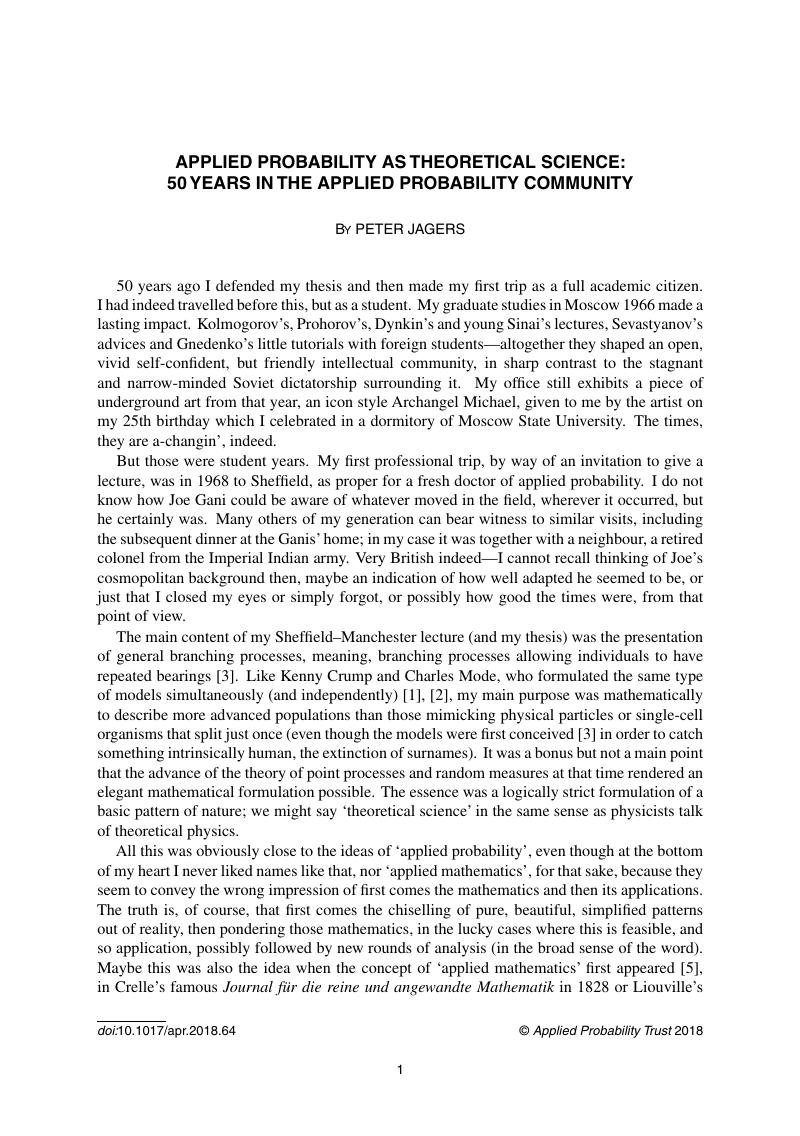No CrossRef data available.
Article contents
Applied probability as theoretical science: 50 years in the applied probability community
Published online by Cambridge University Press: 01 February 2019
Abstract
An abstract is not available for this content so a preview has been provided. As you have access to this content, a full PDF is available via the ‘Save PDF’ action button.

Information
- Type
- Editorial
- Information
- Advances in Applied Probability , Volume 50 , Issue A: Branching and Applied Probability , December 2018 , pp. 1 - 2
- Copyright
- Copyright © Applied Probability Trust 2018
References
[1]Crump, K. S. and Mode, C. J. (1968).A general age-dependent branching process. I.J. Math. Anal. Appl. 24,494–508.Google Scholar
[2]Crump, K. S. and Mode, C. J. (1969).A general age-dependent branching process. II.J. Math. Anal. Appl. 25,8–17.Google Scholar
[3]Heyde, C. C. and Seneta, E. (1977).I. J. Bienaymé: Statistical Theory Anticipated.Springer,New York.Google Scholar
[4]Jagers, P. (1969).A general stochastic model for population development.Skand. Aktuarietiskr. 52,84–103.Google Scholar
[5]Kingman, J. F. C. (2014).Applied probability before 1964, and after 2014. In Celebrating 50 Years of The Applied Probability Trust (J. Appl. Prob. Spec. Vol. 51A), eds S. Asmussen, P. Jagers, I. Molchanov and L. C. G. Rogers,Applied Probability Trust,Sheffield, pp. 5–9.Google Scholar
[6]Kolmogorov, A. (1933).Grundbegriffe der Wahrscheinlichkeitsrechnung.Springer,Berlin.Google Scholar

